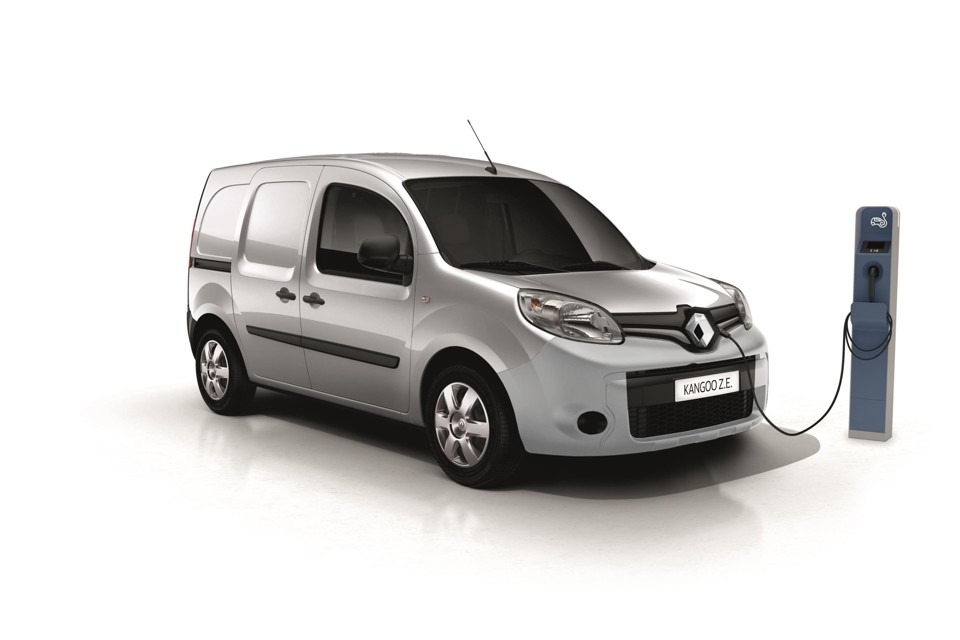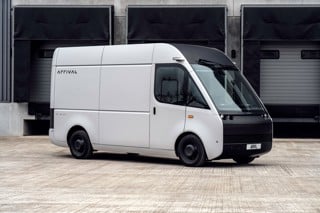The Government has been criticised for cutting the plug-in van and truck grants just as commercial operators begin deploying electric vehicles (EVs).
Plug-in van customers had been eligible for a 20% reduction on the vehicle purchase price, up to a maximum of £8,000.
However, fleets will now receive 35% of the purchase price for small vans, up to a maximum of £3,000 and 20% of the purchase price for a large van, up to a maximum of £6,000.
The plug-in truck grant, which had provided funding of up to £20,000, has been cut by £4,000. The new small truck grant (3.5-12 tonnes) covers 20% of the purchase price, up to a maximum of £16,000.
It will be available for the first 250 orders placed. Grants at the £16,000 rate are also limited to 10 per customer. After the 250-order limit is reached, a maximum grant rate of £6,000 will apply.
However, a new large plug-in truck grant (greater than 12 tonnes) will now offer funding of up to £25,000 – an increase of £5,000.
The eligibility has also changed meaning that to qualify all vehicles must be able to travel at least 60 miles (96km) without any emissions at all.
The changes are expected to allow the funding to last longer. Transport minister Rachel Maclean said: “The increasing choice of new vehicles, growing demand from customers and rapidly rising number of chargepoints mean that, while the level of funding remains as high as ever, given soaring demand, we are refocusing our vehicle grants on the more affordable zero emission vehicles – where most consumers will be looking and where taxpayers’ money will make more of a difference.
“We will continue to review the grant as the market grows."
The Government has also cut the plug-in car grant from £3,000 to £2,500 and excluded models that cost more than £35,000.
It says grants will no longer be available for higher-priced vehicles, “typically bought by drivers who can afford to switch without a subsidy from taxpayers”.
The plug-in vehicle grant scheme was cut in the Budget last year. It was originally introduced in 2011 and has supported the purchase of 285,000 vehicles to date.
Logistics UK says that the decision to cut grants will hinder transition in the commercial vehicle sector.
Head of public policy Michelle Gardner explained: “Switching to zero and ultra-low emission vehicles is an important focus for the logistics industry, as it works to achieve the Government’s zero emissions target by 2050.
"It is therefore disappointing to see the changes announced today to the Government’s plug in car, van and truck grants, which have been reduced for the vast majority of available models.
"Logistics UK’s members are committed to making the switch to alternatively fuelled vehicles, but with the market still to reach maturity, options are limited for operators and reducing the financial support will hinder this transition.
"After the financial impact of the COVID-19 pandemic, to enable operators to make a change within the lifecycle of their normal vehicle, it is imperative that government lays out a clear policy road map to enable operators to invest confidently, while encouraging manufacturers to develop and launch a wider range of suitable vehicles.”
Mike Hawes, chief executive of trade body the Society of Motor Manufacturers and Traders (SMMT), believes the decision to slash the grant is the wrong move at the wrong time.
“Cutting the grant and eligibility moves the UK even further behind other markets, markets which are increasing their support, making it yet more difficult for the UK to get sufficient supply.”
The British Vehicle Rental and Leasing Association (BVRLA) also criticised the timing of the decision to cut the plug-in grant.
BVRLA chief executive Gerry Keaney said: "This will come as a particular blow for the commercial vehicle sector, where BVRLA members have been working so hard to drive uptake of electric vans and trucks.
"Coming just months before the COP 26 summit and as other countries are increasing their zero emission subsidies, this move could also have a big impact on the supply of electric vehicles coming into the UK.”
The plug-in van grant criteria for small vans states they should be less than 2,500 kilograms (kg) gross vehicle weight, have CO2 emissions of less than 50g/km and can travel at least 96km (60 miles) without any emissions.
Eligible vehicles include, the Maxus eDeliver 3 (short wheelbase variants), Nissan e-NV200, Renault Kangoo ZE; and Renault Zoe Van.
The grant will pay for 35% of the purchase price for small vans, up to a maximum of £3,000.
The plug-in van grant criteria for large vans says vehicles should be between 2,500kg and 3,500kg gross vehicle weight, have CO2 emissions of less than 50g/km and travel at least 96km (60 miles) without any emissions.
Eligible vans include, the Citroen e-Dispatch, Mercedes-Benz eVito and eSprinter, Peugeot e-Expert, Renault Master ZE and Vauxhall Vivaro-e.
The grant will pay for 20% of the purchase price for these vehicles, up to a maximum of £6,000.
























Login to comment
Comments
No comments have been made yet.